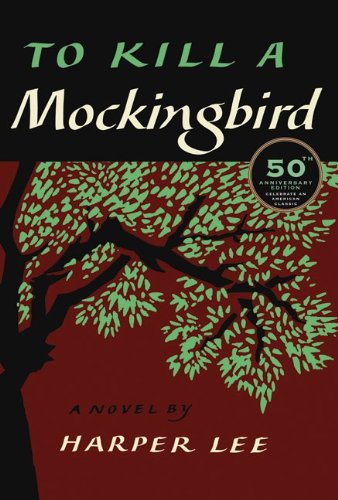All Nonfiction
- Bullying
- Books
- Academic
- Author Interviews
- Celebrity interviews
- College Articles
- College Essays
- Educator of the Year
- Heroes
- Interviews
- Memoir
- Personal Experience
- Sports
- Travel & Culture
All Opinions
- Bullying
- Current Events / Politics
- Discrimination
- Drugs / Alcohol / Smoking
- Entertainment / Celebrities
- Environment
- Love / Relationships
- Movies / Music / TV
- Pop Culture / Trends
- School / College
- Social Issues / Civics
- Spirituality / Religion
- Sports / Hobbies
All Hot Topics
- Bullying
- Community Service
- Environment
- Health
- Letters to the Editor
- Pride & Prejudice
- What Matters
- Back
Summer Guide
- Program Links
- Program Reviews
- Back
College Guide
- College Links
- College Reviews
- College Essays
- College Articles
- Back
To Kill A Mockingbird by Harper Lee
To Kill a Mockingbird
A classic, a tale that lives on throughout the years, grasps the hearts of readers, and presents an unforgettable story. To Kill a Mockingbird is just that, a classic that will take readers on a journey of a man’s struggle to find justice in a town filled of prejudice, violence, and hypocrisy.
Harper Lee’s meaningful story appeals to readers of all times. This tale is about how people treat others and about being prejudice. Tom Robinson, a local black man, is accused of rape of a white woman. Atticus Finch is the defense lawyer for Mr. Robinson, but after pleading his case Tom was found guilty. Tom Robinson never committed the crime of raping a white woman, but he was found guilty because he was black. This story takes place in the 1930’s; racism and prejudice are major problems in this era. To Kill a Mockingbird has lived on as a classic throughout the years because of that exact problem; prejudice and racism are still issues in our society today. Everyone has ethier witnessed or been a victim of racism and prejudice, that is what makes this book a classic because everyone can relate to the problems in this book.
Atticus Finch has two children, Jem and Jean Louise. Atticus never yells at his children and teaches them right from wrong. The story is told from the children’s point of view. By telling the story from their point of view, this allows readers to witness racism as a child would. It impacts readers by showing them how wrong racism is because children aren’t affected by it the same as adult would be. To a child seeing a person treated that way is terrible, but to most adults it is life, they have experienced it and know that racism and prejudice happen in everyday life. They know that everyone has a certain place in society unlike a child who cannot believe someone could ever be treated that way. “You are a child and you can understand it. Things haven’t caught up with that one’s instinct yet. He cries about the simple hell people give other people-without even thinking. Cry about the hell white people give colored folks, without even stopping to think that they’re people, too,” says Mr. Raymond, another character that is judged in this book, many people thing he is drunk, even though he has never had a sip of alcohol in his life. This strong and impacting theme evokes both sympathetic and empathetic feelings from readers.
In the book the children’s aunt tells Atticus that Jean Louise needs to start acting like a woman, and Jem more like a gentleman. She explains to him that they have to keep the Finch name alive and not allow them to go running around wild. The children face the problems of being thrown into a town that is very prejudice against them because their father is taking Tom Robinson’s case. They also face the problem of having to grow up, when they are still just kids. They are being forced into taking on issues that they can’t understand. The children are unforgettable because of how they cope with their problems and how they stick together throughout the story. They stick to their word and do not do anything that they don’t understand or think isn’t right. The children resolve these problems by talking to their best friends Dill and talking to Atticus about all their issues and questions about life.
Harper Lee uses a powerful diction to capture and hold the readers’ attention. She shows the struggle a person undergoes between good and evil and internal conflict that everyone faces. In this book she expertly compares past and present, justice and injustice, danger and security, women and men, and innocence and experience. This book greatly impacted me in noticing how some people are still treated today because of their name or the color of their skin. To Kill a Mockingbird has showed me that everyone is equal, and no one is better than another person
Similar Articles
JOIN THE DISCUSSION
This article has 1 comment.


Your review is great! I love your writing style- just one tip:
-I think you misunderstood some things when I read your last sentence, it doesn't man that "nobody is better" but that everyone is "equal"